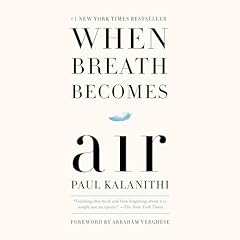
The Death of Ivan Ilyich
Failed to add items
Add to Cart failed.
Add to Wish List failed.
Remove from wishlist failed.
Adding to library failed
Follow podcast failed
Unfollow podcast failed
Audible Standard 30-day free trial
Buy for $12.58
-
Narrated by:
-
Simon Prebble
-
By:
-
Leo Tolstoy
Hailed as one of the world’s masterpieces of psychological realism, The Death of Ivan Ilyich is the story of a worldly careerist, a high-court judge who has never given the inevitability of his death so much as a passing thought. But one day death announces itself to him, and to his shocked surprise, he is brought face-to-face with his own mortality. How, Tolstoy asks, does an unreflective man confront his one and only moment of truth?
The first part of the story portrays Ivan Ilyich’s colleagues and family after he has died, as they discuss the effect of his death on their careers and fortunes. In the second part, Tolstoy reveals the life of the man whose death seems so trivial. The perfect bureaucrat, Ilyich treasured his orderly domestic and office routine. Diagnosed with an incurable illness, he at first denies the truth but is influenced by the simple acceptance of his servant boy, and he comes to embrace the boy’s belief that death is natural and not shameful. He comforts himself with happy memories of childhood and gradually realizes that he has ignored all his inner yearnings as he tried to do what was expected of him. Will Ilyich be able to come to terms with himself before his life ebbs away?
This short novel was the artistic culmination of a profound spiritual crisis in Tolstoy’s own life, a nine-year period following the publication of Anna Karenina, during which he wrote not a word of fiction. A thoroughly absorbing glimpse into the abyss of death, it is also a strong testament to the possibility of finding spiritual salvation.
Public Domain (P)2009 Blackstone Audio, Inc.Listeners also enjoyed...
















![The Brothers Karamazov [Naxos AudioBooks Edition] Audiobook By Constance Garnett - translator, Fyodor Dostoevsky cover art](https://m.media-amazon.com/images/I/51DpA-g11JL._SL240_.jpg)



Critic reviews
Featured Article: The Best British Narrators
If you're looking for an audiobook in an accent, check out these listens from our favorite British narrators. Authenticity is something many listeners value in their audiobook experiences, and that often boils down to narration style and accents. Although so many audiobooks are narrated by many talented actors with wide ranges, sometimes it's just nice to listen to an audiobook performed by someone in their native accent. If you're searching for the best British narrators, look no further. We’ve done the tough job of picking just ten of our favorite British narrators that you'll love listening to.
People who viewed this also viewed...


















At it's essence, the story is about the human capacity to change and learn as lives evolve, and that it's never too late to find peace. Any person who has undergone profound transformation, either through effort on their own part or through drastic life experiences, will relate to Ivan Ilyich's struggle, and especially to the profound shift in relationships he experiences with those around him, whose lives remain static and unchanged in the face of his own evolution, and how difficult it is to evolve when one is surrounded by friends, family, and colleagues who do not.
This story is also about the virtue of being able to tell hard truths, and the comfort that the truth can bring even when it communicates bad news. No one around Ivan Ilyich would admit that he was dying despite his own inner feeling that it was so, except for one of his peasant servants, who spoke bluntly and truthfully, endearing him to Ilyich as the only person he could stand to be around until his death, the only other healthy person so enlightened as a dying man. And when you're dying, there's no time for anything except blunt, simple truths.
Elegant, simple, and true
Something went wrong. Please try again in a few minutes.
Did you have an extreme reaction to this book? Did it make you laugh or cry?
So many favorite authors and teachers reference this book, I felt I needed to read/listen for myself. I enjoyed it, got depressed, asked alot of questions of myself, and shed tears when he considered his life and his lack of connection with his kids in particular ... tough mirror to look into.Any additional comments?
I likely will listen again from time to time. It's a short story, but profoundly insightful!Short story. very deep meaning
Something went wrong. Please try again in a few minutes.
2.5 Hours with a self-absorbed dying Russian Judge
Something went wrong. Please try again in a few minutes.
To all - enjoy (and hug your children)
A brilliant performance of a brilliant work.
Something went wrong. Please try again in a few minutes.
Every inch a Tolstoy
Something went wrong. Please try again in a few minutes.



